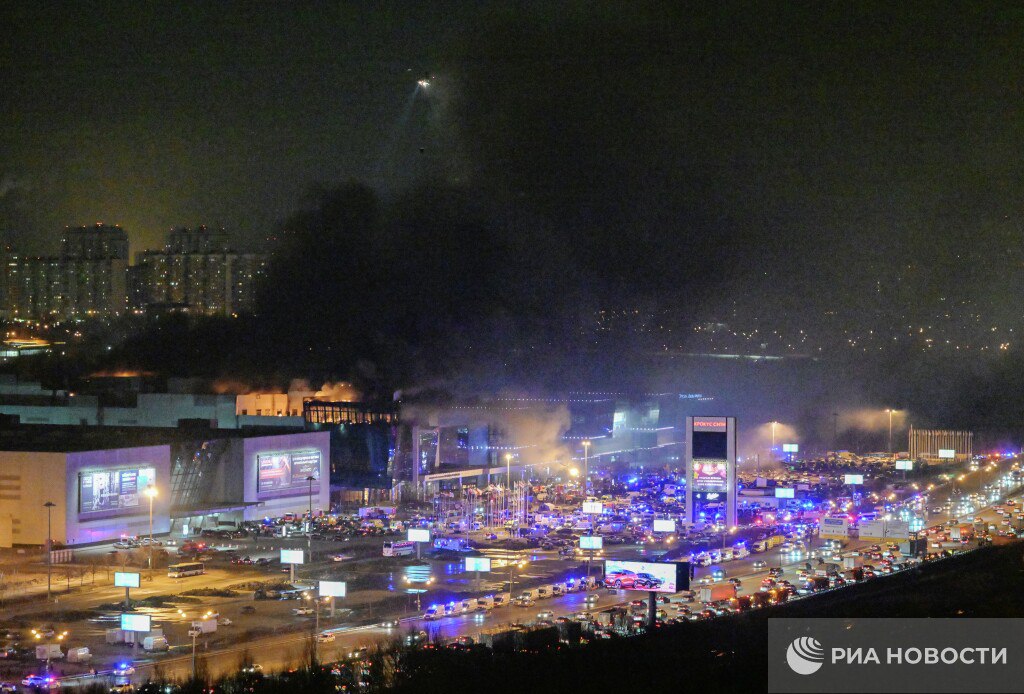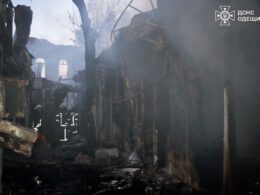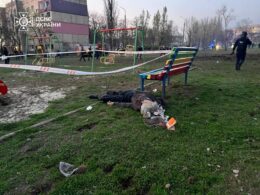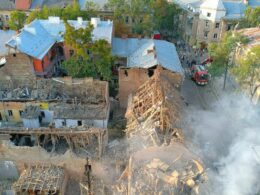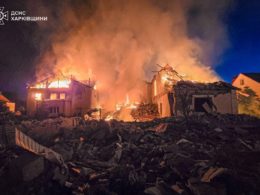The Russian head of the Ministry of Health, Mikhail Murashko, said that 140 people were killed as a result of the terrorist attack in Crocus City Hall in a Moscow suburb.
The shooting attack occurred on the evening of 22 March when crowds gathered for a concert at the Crocus City Hall concert center on the outskirts of Moscow.
The number of injured in the attack rose to 360, the Russian-state media TASS reported on 27 March.
Minister Murashko said that four more patients remain in extremely serious condition, 19 in serious condition, including three children. Some 34 people are in moderate condition.
Russian Telegram channel reported that 95 people missing after the terrorist attack in Crocus.
The international terrorist organization Islamic State had claimed responsibility for the attack on Crocus City. US shortly after confirmed IS's responsibility for the attack.
The Institute for the Study of War (ISW) reported on 23 March that “the Islamic State (IS) is very likely responsible for the Crocus City Hall attack.”
According to ISW, “The Amaq News Agency announcement is consistent in terms of style, branding, and language with previous Amaq claims for other attacks.” The conduct of the attack itself is also consistent with previous IS attacks, including the 2015 Paris terror attacks, ISW reported.
Russian propaganda attempted to link these attacks to Ukraine, falsely alleging involvement of “Slavic people” or the use of Ukrainian license plates by the suspects. However, subsequent investigations have debunked these claims, revealing no credible connection to Ukraine.
Ukraine’s Ministry of Foreign Affairs “categorically” rejected the accusations from Russian officials about Ukraine’s alleged “involvement” in the shooting at the Crocus City Hall concert venue.
Ukrainian intelligence spokesman Andriy Yusov said that the shooting in Moscow was a deliberate provocation by Putin’s regime, which the international community had warned about.
“The Kremlin tyrant began his career with this and wants to end it with the same crimes against his own citizens,” Yusov said.
Russia will reportedly use the attack and its conjured “Ukrainian link” to escalate its war against Ukraine.
The Russian informational campaign had already taken effect despite being debunked linking to Ukraine. On 25 March, images of Russian bombs inscribed with messages calling for revenge for Crocus City Hall began circulating on Russian social media.
Russian authorities persist in their efforts to link Ukraine to the attack. This deduction can be made based on the statements of infamous Kremlin propagandists such as Simonyan, who stated, “This isn’t ISIS. These are Ukrainians. And the fact that even yesterday, before the arrests, before the identities of the perpetrators were known.”
Crocus City Hall: incompetence or deliberate failure of Russian security? An OSINT analysis
Russia faced deadly terror attacks in the early 2000s during the Chechen war. In 1999 Putin became president. In the early 2000s, Russia faced deadly terror attacks during the Chechen war. In 2002, Chechen militants took 800 hostages at a Moscow theater. In 2004, Chechen militants seized a school in Beslan, taking hundreds hostage; the two-day siege ended with over 330 dead, about half of them children. Critics of Putin’s regime claim that the FSB could have orchestrated the terrorist attacks.

